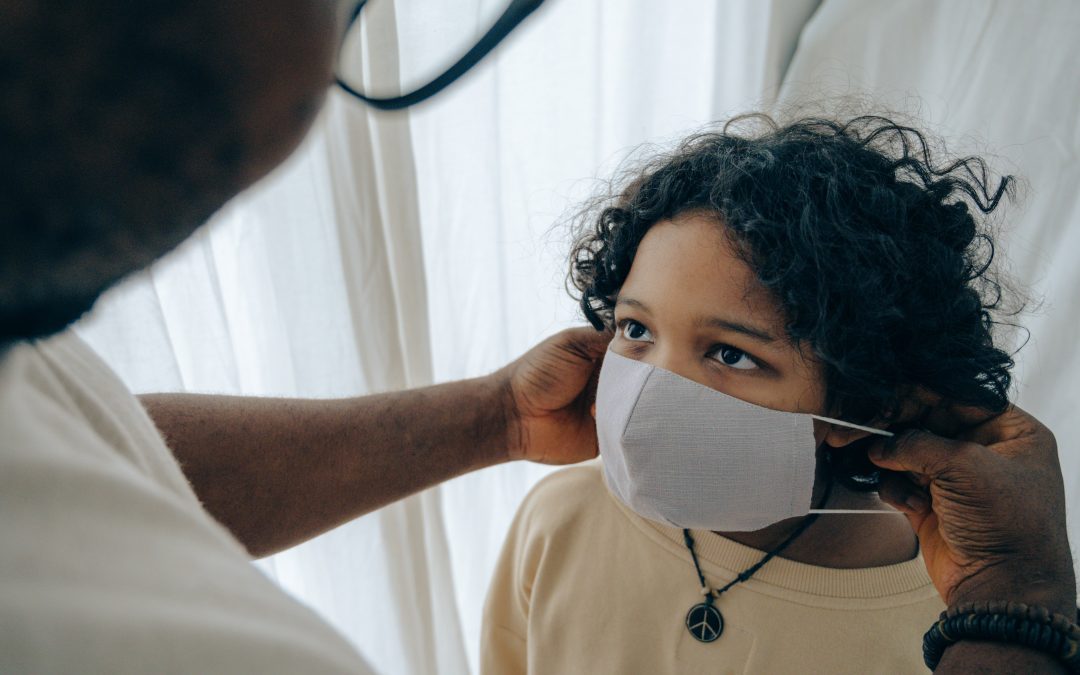The Women and Equalities Committee recently called for evidence around the disproportionate effects of Covid-19 on people with protected characteristics.
At Justice Studio, we are also concerned about emerging evidence of the disproportionate effect of Covid-19 on BAME communities, and took this opportunity to provide evidence and key recommendations around the government’s approach to the Covid-19 crisis.
Covid-19 does not discriminate, but our social structures do: How the pandemic is exacerbating previous inequalities
From our previous research into the outcomes of black and minority ethnic (BAME) men with prostate cancer we know that supports for avoiding and recovering from illness, including access to information, healthcare, and underlying conditions related to environmental quality, have been historically prejudiced.
Ethnicity is not an absolute biological category, and so the differences in ethnic groups and coronavirus impacts are less likely to be the result of genetic predisposition, and more likely to result from societal, political and cultural marginalisation. Marginalisation existed before Covid-19, but is magnified by it.
BAME groups have been disproportionately affected in previous outbreaks and pandemics, and emerging evidence suggests the same is true of Covid-19.
Race, ethnicity, and socioeconomic status are reliable proxies for the complex socio-biological-environmental factors that determine health outcomes. An extensive body of research has documented how, in the UK and other white-majority countries, black, Asian and minority ethnic communities have borne the impacts of previous influenza epidemics.
Despite representing just 14% of the UK population, 35% of critically ill Covid-18 patients are BAME according to early analysis of available data.
Based on extant research and comparable studies, we are concerned that these disparities may be attributed to three primary factors:
First, there are disparities in the risk of exposure: Frontline workers, wage workers, and those in the ‘gig economy’ are disproportionately BAME individuals. Between 60% and 70% of healthcare and social workers deaths have been BAME individuals.
A very recent report states that while Asian and black personnel make up 10% and 6% of the NHS workforce, respectively, they account for 36% and 27% of known NHS worker deaths.
Second, there is reduced access to healthcare and factual information: Significant disadvantages related to socioeconomic factors and access to basic care and information compound risk factors. In addition to this, many underlying conditions relevant to Covid-19 severity (such as asthma) require self-management, which is more difficult to embed in populations with lower rates of health literacy.
Previous examples from influenza outbreaks find relationships between ethnicity and socioeconomic deprivation and health-seeking behaviour, particularly in access to antivirals during a pandemic. Further, alarming disinformation—such as rumours that people with dark skin are not affected by coronavirus—has gained traction on social media channels since January, and has been echoed by media personalities with little or no effort to dispel such myths.
Third, there is greater susceptibility due to underlying conditions: Emerging reports on the relationship between heart disease and Covid-19 include a letter published April 29 in the New England Journal of Medicine detailing five young and middle-aged Covid-19 patients. These patients had suffered large vessel strokes across a two week period, suggesting a relationship between Covid-19 and large vessel blood clots—even in patients without symptoms. Similar research in the Netherlands suggests the same results.
Heart disease and hypertension (high blood pressure), both emerging factors in the severity of Covid-19 cases, are also correlated with lower socioeconomic status and with ethnic minorities.
In the UK, the burden of cardiovascular disease is higher among those with South Asian heritage, while occurrence of stroke is higher among African-Caribbean groups. Repeated studies show hypertension is greater in Afro-Caribbean men (30.8% in 2002) and women (34.4%) compared to white men (19.4%) and women (12.9%). Further, African-Caribbean ethnicity is associated with a hypercoagulable state and thus risk of venous thromboembolism, or clots in deep veins.
Together, these studies suggest ethnicity may be a predictive variable in determining Covid-19 health outcomes. Again, this is not due to inherent biological differences between groups, but because of environmental and social factors that impact different groups disproportionately.
It is also important to recognise that the severe cases involving blood clots highlighted above occurred in otherwise young and healthy patients with few or no Covid-19 symptoms, meaning those most affected may not be sheltering in place as they will not consider themselves at risk.
Environmental and ecological factors also exacerbate underlying conditions in BAME populations.
Environmental factors, including pollution and living conditions, are related to respiratory conditions, such as asthma. Asthma and related chronic illnesses are demonstrably influenced by socioeconomic status, and are more common in ethnic minorities.
Covid-19 affects breathing and respiratory systems and chronic asthma sufferers are considered at high risk for developing severe coronavirus symptoms. Importantly, many chronic breathing problems are caused by the pollution that characterises the poorest areas of the UK.
The inequalities that characterise BAME populations affect people with asthma, which is more prevalent in deprived communities.
Asthma is not only more prevalent in deprived communities, but those living in more deprived areas of the UK are more likely to require hospital treatment for asthma.
This is no surprise, given that 66% of human-made carcinogens are emitted in the 10% most highly deprived English city wards, which are also less likely to have access to green spaces and associated air quality benefits, and receive less spending on public transport.
Overcrowded living conditions also make social distancing measures less attainable and are more likely to affect BAME groups.
For example, among UK Bangladeshi populations 30% are considered to live in overcrowded housing. For black Africans and Pakistanis this is 15%. Some of the disparity shown in early studies of Covid-19 deaths and BAME populations may be accounted for by higher transmission rates in densely populated areas, such as large cities, where there is a higher BAME population.
Data around protected characteristics, including racial/ethnic disaggregated data in Covid-19 cases and mortalities, must be collected and analysed.
Previous studies on race, ethnicity, and viral outbreaks/epidemics have called for the collection of individual-level data on ethnicity during future pandemics, as well as qualitative research to examine reasons for disparities in health outcomes.
One recent report found none of the ten countries with the highest Covid-19 cases have reported ethnicity data; this includes the UK, where ethnicity has not been a required metric.
There is far too little data being collected around race/ethnicity and Covid-19. While death certificates may list country of origin, we understand that this is not shorthand for ethnic identity in any applicable sense, such as the way a person has lived their life, what groups they interact with, or what exposure that may have entailed.
However, we support early and emerging efforts to correlate self-identifying racial/ethnic categories with health outcomes and urge decision-makers to funnel resources toward furthering these inquiries.
Data collection must be followed with critical, systematic analysis to determine correlations between self-identified race/ethnicity and Covid-19-related health outcomes. Calls for urgent public health research into race and ethnicity with relation to Covid-19 has been very recently highlighted in leading journals. Much of this has drawn attention to comorbidity burdens relative to race and ethnicity, education and understanding around Covid-19, and social behaviours (such as interaction with unwell and holding social/familial gatherings).
We argue that responses must address racial/ethnic specificities.
At Justice Studio, we believe in research efficacy that takes into account the lived experiences and contextual nuances of peoples’ lives.
This must include close attention to, and sustained efforts to engage with, communities that have a historic distrust of authorities and health researchers such as BAME groups which is an understandable feature of research due to historic research abuse. Already during Covid-19 concerns arising from two French doctors’ suggestion that vaccine trials be undertaken on African populations in the Democratic Republic of Congo have left many UK black populations worried that any covid-19 research will involve injections or vaccines etc.
This is something that we encountered when recruiting for our purely qualitative peer research with older people, and steps must be taken to ensure that any research is transparent and non-abusive, invasive or exploitative. Previous research into health crises and race has made use of existing datasets to inform present-day decision-making. We support efforts to rapidly review data from previous outbreaks to save BAME lives today.
Justice Studio provides intelligence services to enable unions of nations, governments, and not-for-profit organisations better promote social justice.
All written evidence submitted to the Women and Equalities committee, including our submission, can be found here.
Featured photo by Ketut Subiyanto from Pexels.


I do trust all the ideas you’ve presented in your post. They are really convincing and will definitely work. Nonetheless, the posts are too short for newbies. May just you please lengthen them a bit from next time? Thank you for the post.
My brother suggested I might like this website. He was totally right. This post actually made my day. You cann’t imagine just how much time I had spent for this information! Thanks!
Every time I read a new post, I feel like I’ve learned something valuable or gained a new perspective. Thank you for consistently putting out such great content!
Nice blog here Also your site loads up fast What host are you using Can I get your affiliate link to your host I wish my web site loaded up as quickly as yours lol